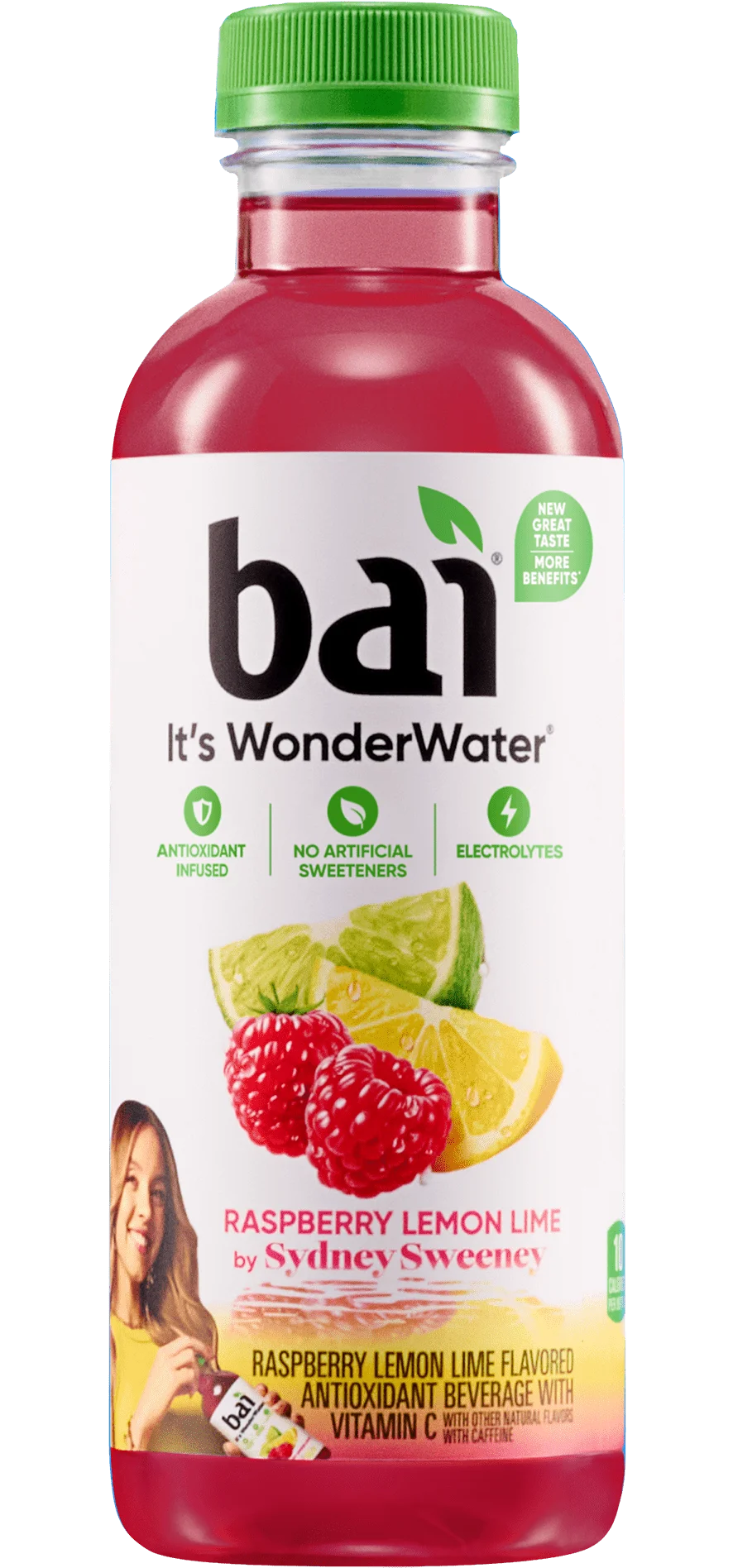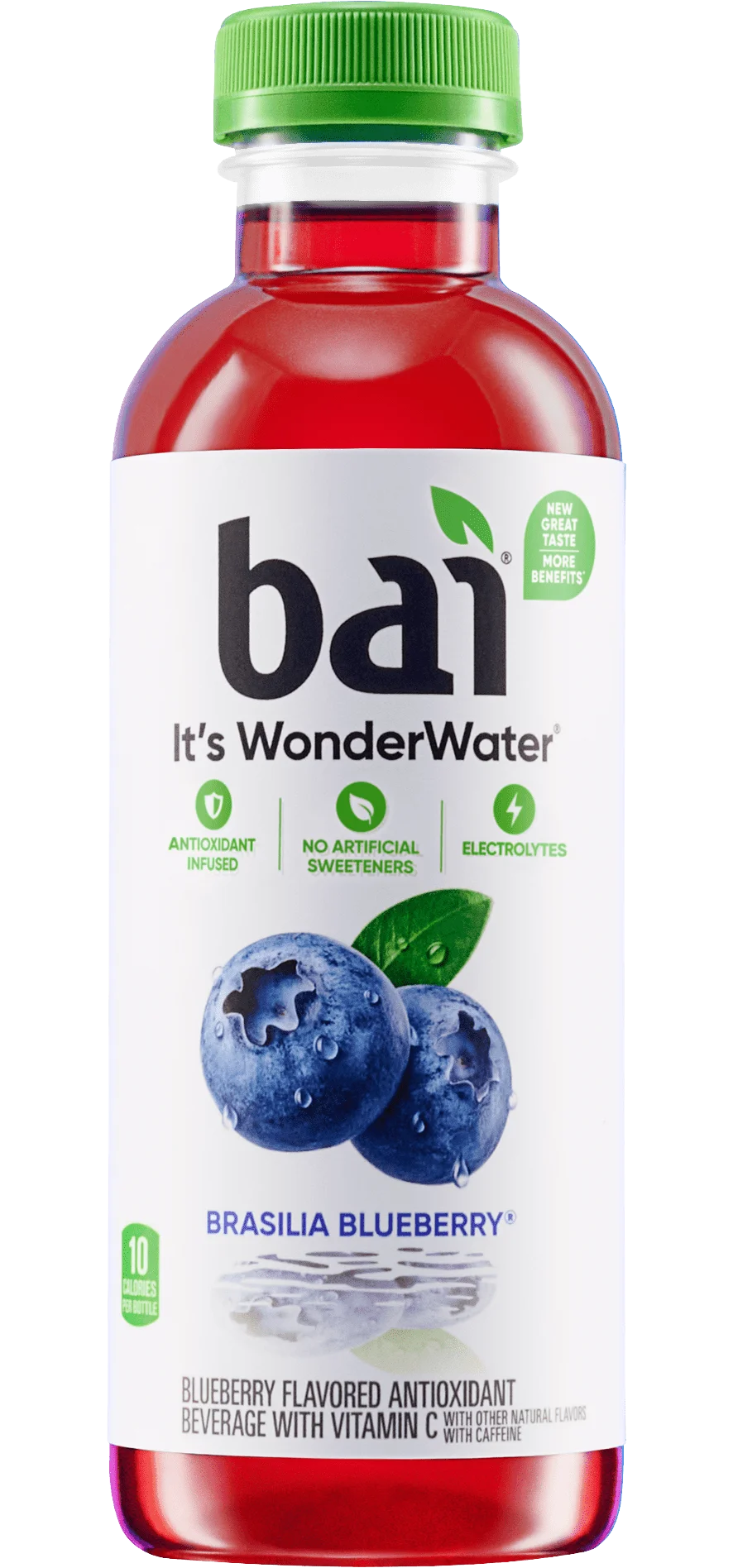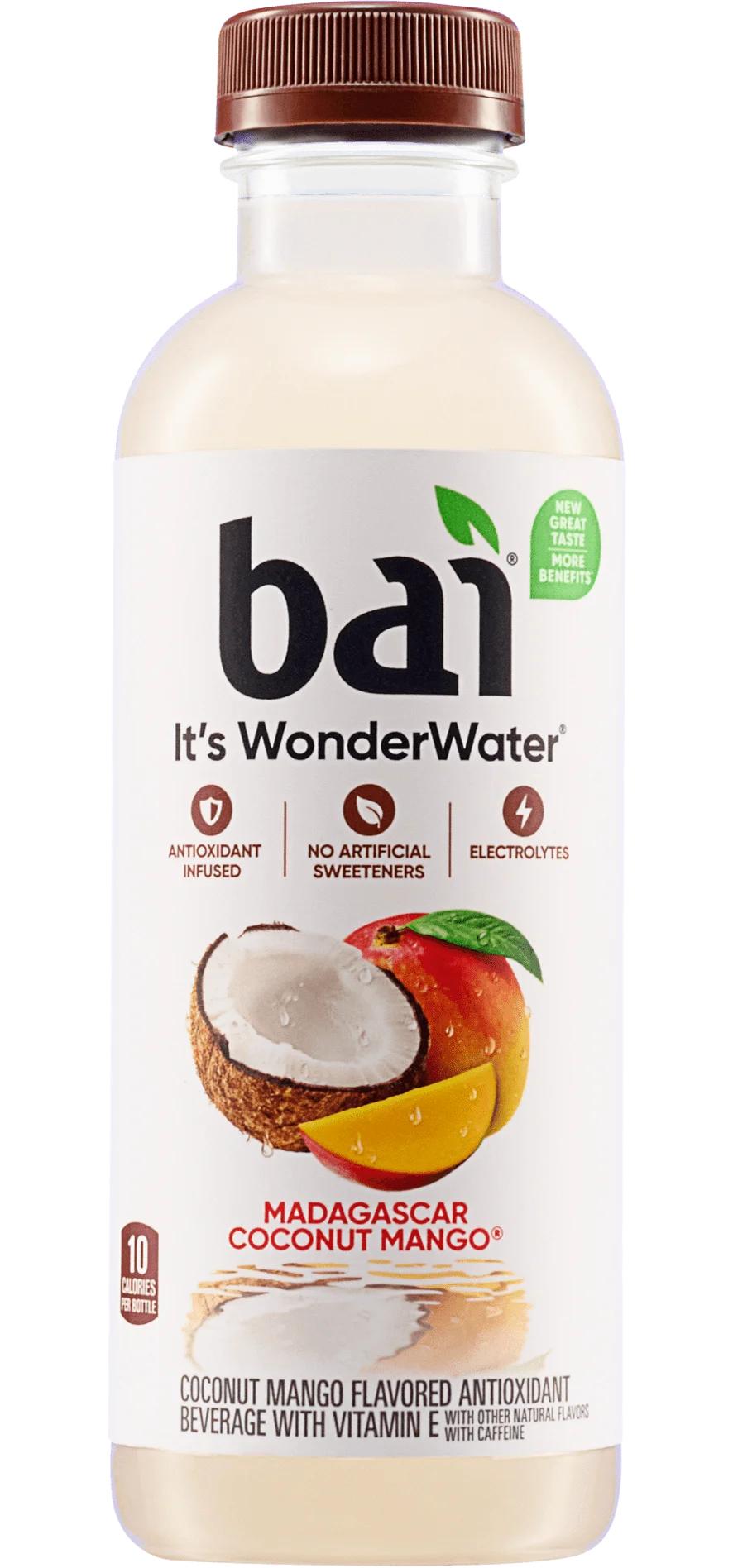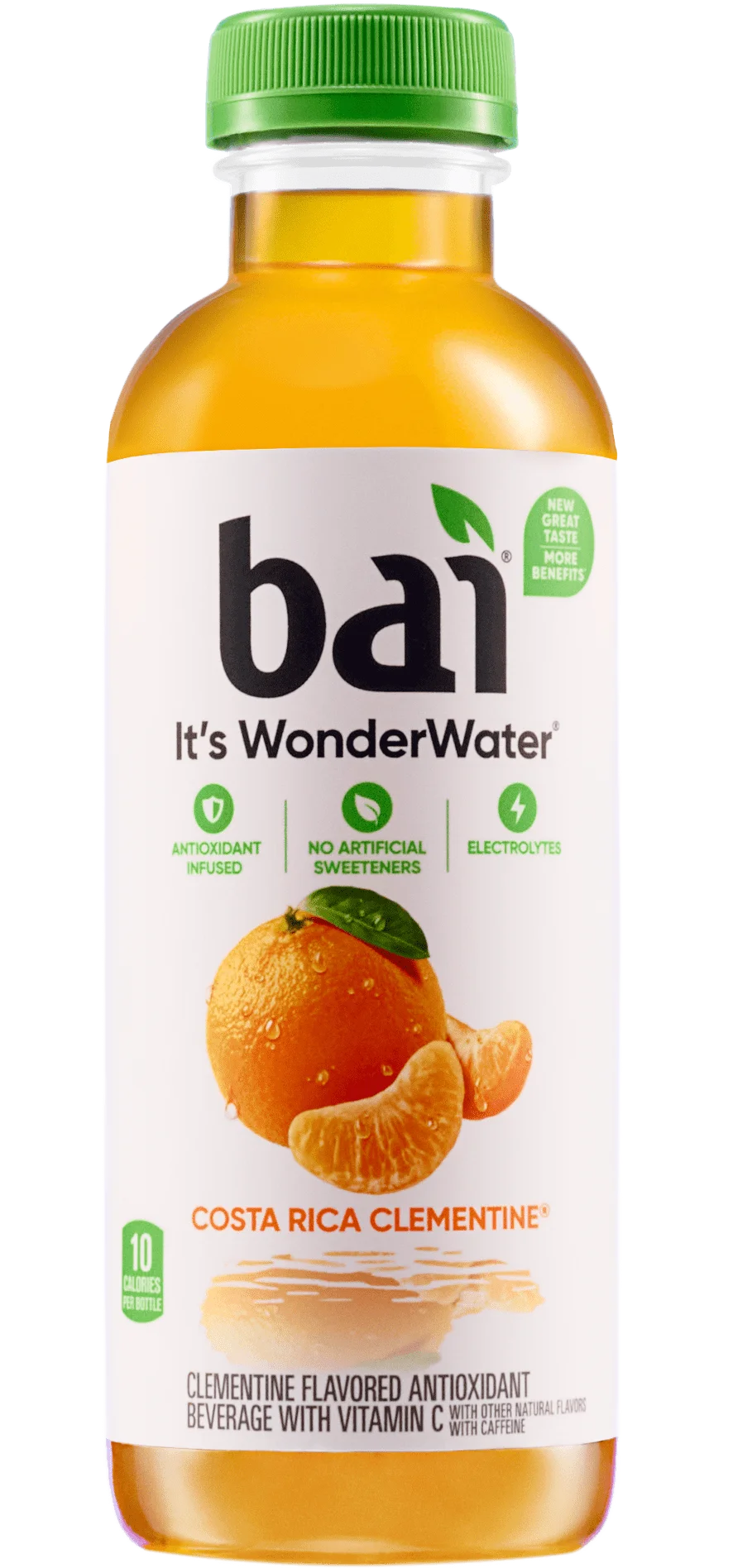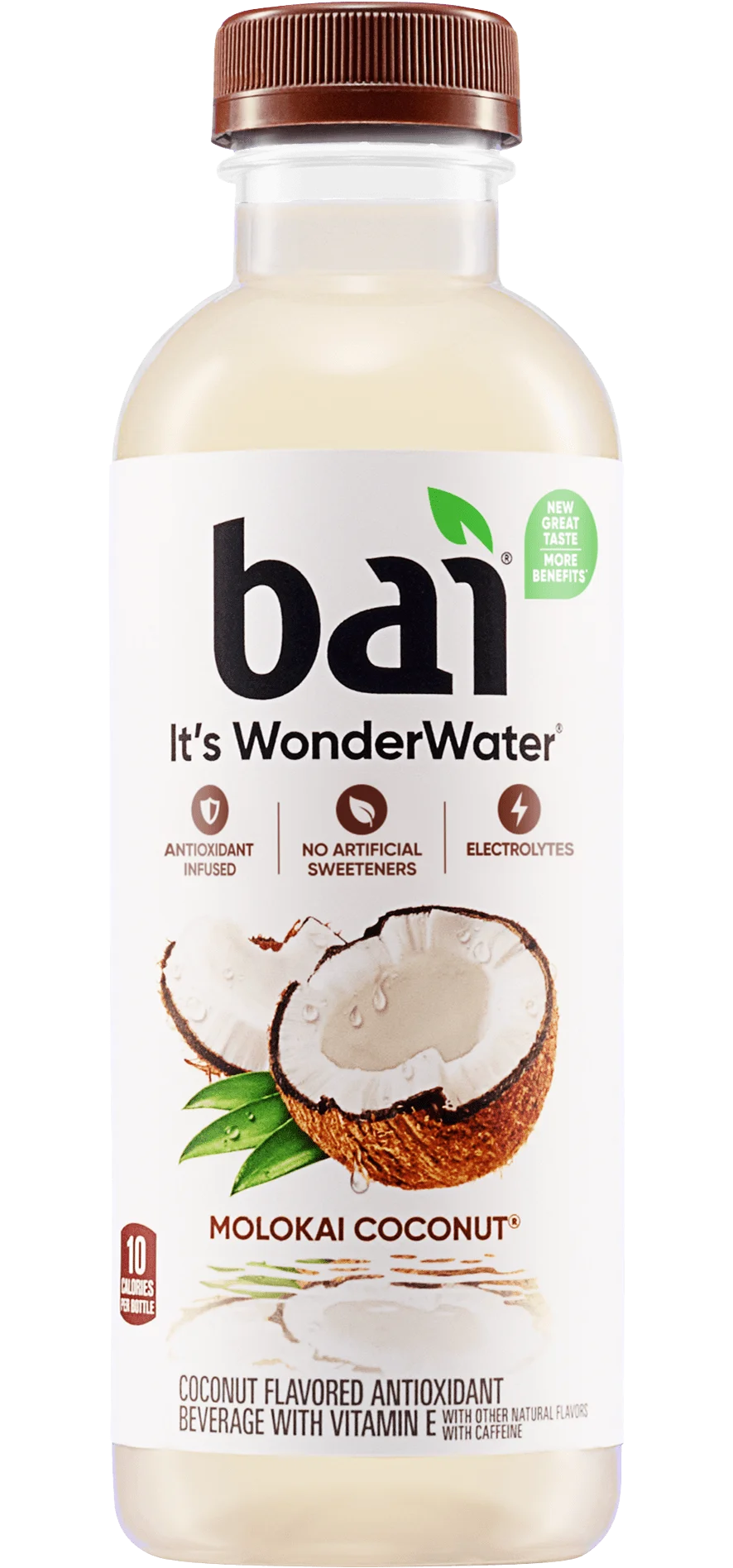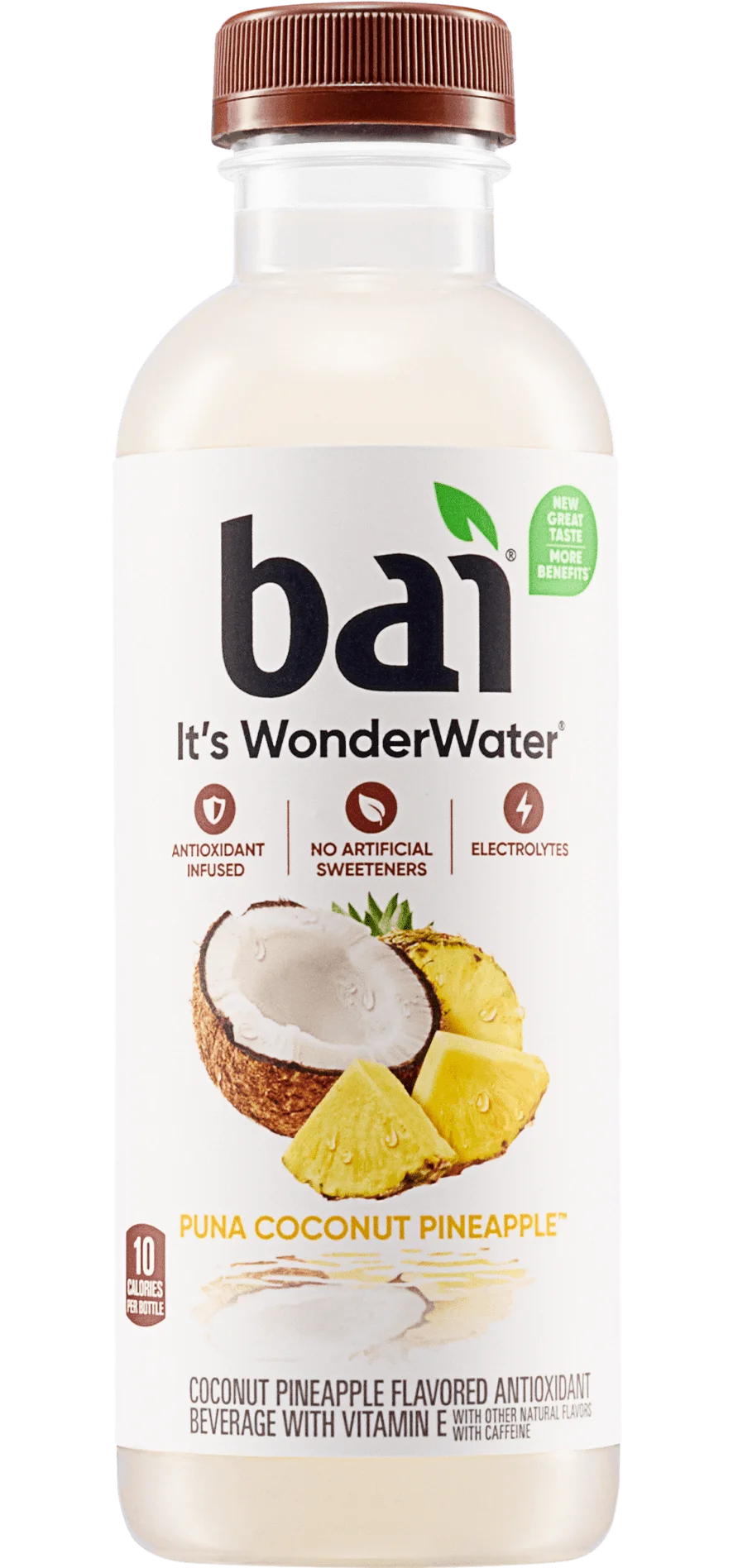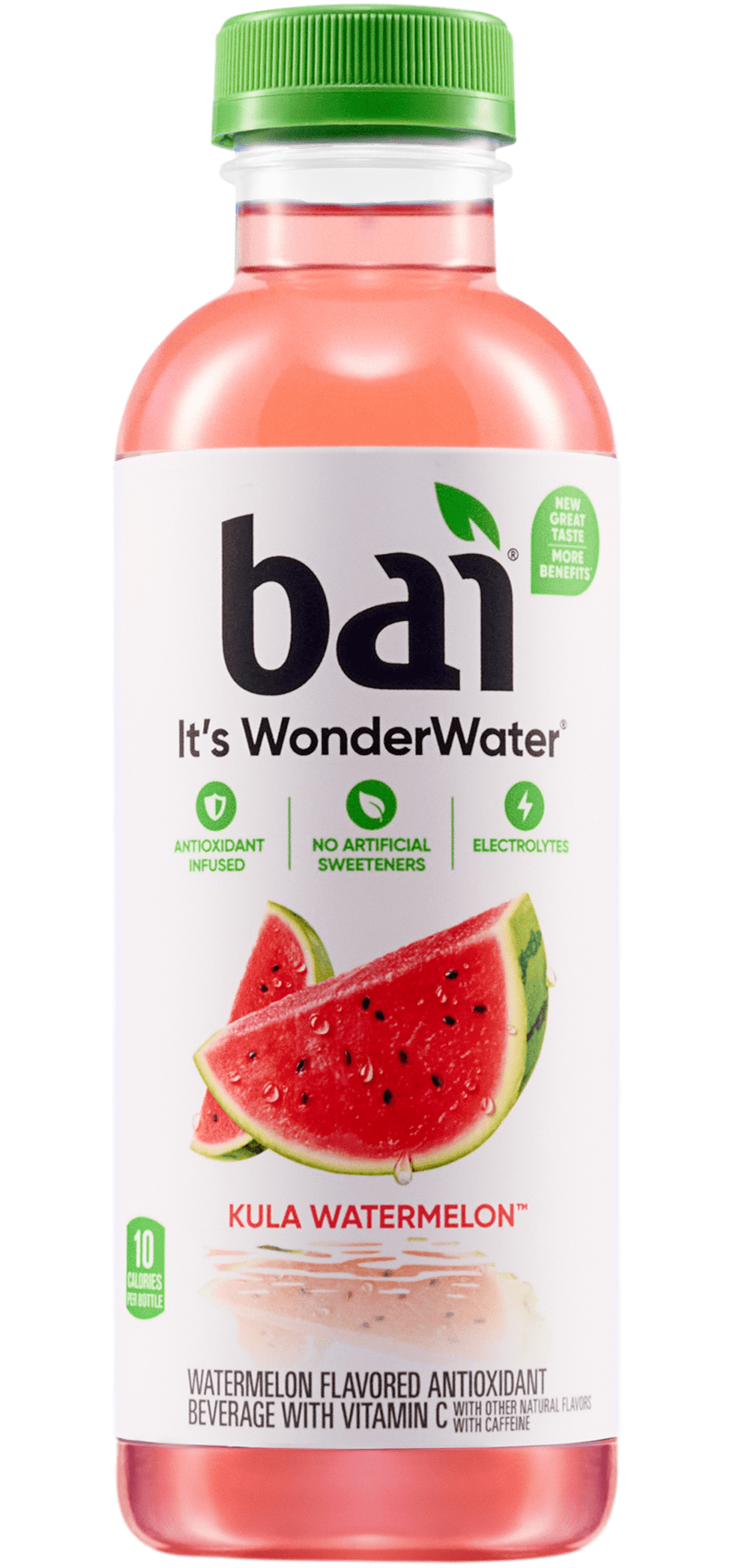Bai Antioxidant Infusion®
When did Bai® beverages launch?
Bai® beverages were launched in Princeton, NJ in 2009 and joined the Keurig Dr Pepper family of brands in 2016.
What does “Bai” mean?
Bai is the Mandarin Chinese word for “pure.” It’s also an acronym for “botanical antioxidant infusions.”
What is an antioxidant?
Antioxidants are substances found in foods and beverages that defend the body against cell-damaging, unstable molecules known as free radicals and stop the destructive process of oxidation. Read our Q&A for more information.
These taste so good, are they naturally flavored?
Bai uses only natural flavors without artificial sweeteners to create our delicious beverages for consumers who desire better alternatives to high-calorie drinks full of processed synthetic ingredients not found in nature.
What is Bai?
Bai® beverages are a line of antioxidant-infused beverages packed with flavor and not sugar— there are no artificial sweeteners here! Bai® drinks are sweetened with natural sweeteners stevia leaf extract and erythritol and are infused with antioxidants derived from tea extract or green coffee bean extract and Vitamin C or E. Bai is also gluten free, BPA free, and has low glycemic impact.
What are the varieties of Bai?
We have nineteen refreshing flavors across all of our Bai sub-brands: Brasilia Blueberry, Costa Rica Clementine, Dominica Dragon Passion Fruit, Ipanema Pomegranate, Kula Watermelon, Kupang Strawberry Kiwi, Malawi Mango, Panama Peach, Sumatra Dragonfruit, Zambia Bing Cherry, Burundi Blueberry Lemonade, Lanai Blackberry Lemonade, São Paulo Strawberry Lemonade, Andes Coconut Lime, Madagascar Coconut Mango, Molokai Coconut, Puna Coconut Pineapple, Nariño Peach Tea, Rio Raspberry Tea, Socorro Sweet Tea, Tanzania Lemon Tea.
Where does Bai get its amazing flavor?
Bai Brands has conducted extensive research and formulation development to blend the finest ingredients from nature into the distinctively bold flavors found in Bai. Fruit flavors are combined with two sweeteners — stevia leaf extract and erythritol — to form Bai’s uniquely delicious recipe.
Erythritol? Stevia Leaf Extract? Huh?
Erythritol is a non-artificial low-calorie sweetener discovered in 1848 by John Stenhouse from a number of different plant-based sources. It was commercialized in the 1970s in Japan, and has been widely used ever since. Stevia leaf extract is a zero-calorie sweetener extracted and filtered from the leaves of the Stevia plant, which has been used as a sweetener by the indigenous people of Paraguay for more than 200 years. These sweeteners come from nature, and they have a seriously studied history. When you balance them together, you get Bai’s perfect low-calorie sweetness. If only all plants were this delicious (looking at you, Kale!)
How much sugar is in Bai?
There is one gram of sugar in each 8 oz. serving of Bai®.
How many calories are in a serving?
There are 10 calories in each bottle of Bai® drinks, making it an ideal alternative to the many high-sugar, high-calorie beverages on the market today. The sweeteners used in Bai — stevia leaf extract and erythritol — are metabolized in such a way that they have no caloric impact, as opposed to refined sugars or other processed sugar substitutes. These “smart sweeteners” are the key to Bai® brand’s distinctive combination of great flavor and low calories.
What is the source of antioxidants in Bai® beverages?
Bai® beverages antioxidant concentration comes from green coffee bean extract or tea extract, and vitamins C or E.
Why does Bai® beverages have added tea extract?
Tea extract is both a source of added antioxidants and nature’s caffeine, giving Bai drinkers energy and making Bai® beverages a better alternative to the many over-caffeinated, over-sugared drinks on the market.
So is there coffee in this?
No, each bottle of Bai has a dash of an extract made from coffeefruit —not from roasted coffee beans.
Why doesn’t Bai taste like coffee?
The flavor that we associate with a traditional cup of coffee comes from the roasted bean. Since Bai uses the unroasted fruit of the coffee plant and not a roasted bean, it has no coffee taste. Instead, Bai® beverages offer refreshing fruit flavor, with sweetness that comes from stevia leaf extract and erythritol. The coffeefruit does not impact its flavor.
What is the level of caffeine in your beverages?
The caffeine in Bai® beverages are derived mainly from tea extract and varies by product. Bai Antioxidant Infusions®, Antioxidant Cocofusion®, Bai® SuperTea and Lemonade varieties contain 55mg per bottle, or about as much as a cup of tea. Bai Bubbles® drinks contain 35mg per bottle, while Bai Boost® drinks contain 110mg.
Are Bai® drinks free of all 8 FDA regulated allergens?
Bai® drinks are free of at least 7 of the 8 FDA regulated major allergens. This means that Bai is free of milk, eggs, fish, shellfish, peanuts, wheat and soybeans. Our Antioxidant Cocofusion® beverages, including Andes Coconut Lime, Madagascar Coconut Mango, Molokai Coconut, and Puna Coconut Pineapple flavors contain coconut. If you have an allergy concern, we always recommend you consult with your physician.
What are your natural flavors?
The term “natural flavors” is our “secret sauce” of natural oils, essences and extracts etc. that help enhance the flavor profile of Bai® beverages. The specifics of our natural flavors are proprietary, but we can tell you that all of our ingredients are gluten free with no artificial colors.
How do our flavors get their names?
Ever pluck a pear in the Congo? Ever peel a clementine in Costa Rica? OK, probably not. Confession: Neither have we. But we crafted our Bai flavor names to playfully pay homage to the world’s coffee regions, celebrating the lands where our coffeefruit — comes to life. While we at Bai are serious students of how to create great all-natural flavor, we may have missed a geography class here and there. Meanwhile, enjoy a pomegranate in Ipanema … if you can find one!
Does Bai® drinks need to be refrigerated?
While we believe our Bai drinks taste best cold, this is a personal preference. We recommend refrigerating after opening to ensure the product’s high quality standards. And remember, shake well before drinking!
Is Bai® beverages gluten-free?
Yes


